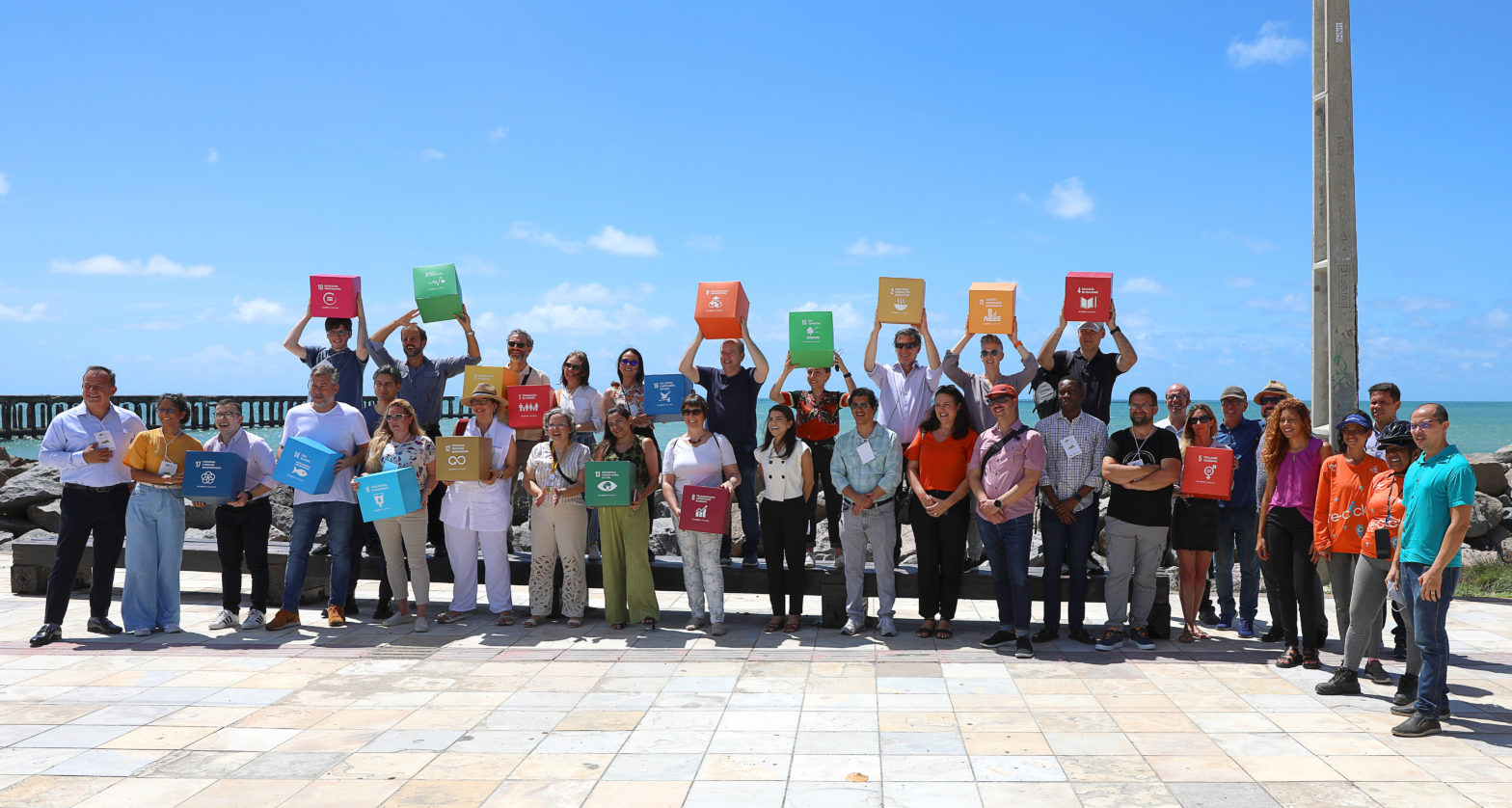The IURC Latin America programme proudly announces the conclusion of its three-year journey, leaving an indelible mark on urban development and regional innovation. Established in 2021, the programme’s success is underscored by meticulous city-to-city and region-to-region pairings across six Latin American countries and their European counterparts, resulting in 12 city and 10 regional partnerships involving 14 countries.
In 2022, the programme seamlessly transitioned into its implementation phase after overcoming the global challenges posed by the Covid-19 pandemic. The completion of 44 study visits facilitated immersive exchanges, sharing of best practices, and exploration of economic and academic opportunities through a multistakeholder collaboration approach. Cooperation agreements were signed, and detailed Urban and Regional Action Plans were developed, laying the foundation for the transformative success stories that would follow.
In addition to study visits, the programme actively participated in 12 international networking events with more than 300 delegates and organized 20 webinars, fostering further knowledge exchange. A noteworthy outcome was the production of knowledge-based products, including 12 case studies, 22 takeaways or factsheets, 5 guidelines, 1 comparative study and 1 manual. On top of that, the programme published more than 130 press releases on the website. IURC-LA also promoted collaborative relationships with other IURC geographical areas and EU programmes (Global Covenant of Mayors, Low Carbon Business Action) and external organizations such as the World Resources Institute and United Nations Environment Programme.
The collaborative efforts between regions within IURC-LA have yielded remarkable achievements involving key actors from their innovation ecosystem such as universities, research institutions and business associations. For example, Parana’s SANEPAR and Silesia’s Central Mining Institute signed a Memorandum of Understanding to foster the production of organic fertilizers from sewage sludge. For regions will continue their collaboration through the “Brasilesia” initiative, which is a business accelerator supporting economic opportunities between Brazil and Poland. Simultaneously, the partnership between Ostrobothnia (Finland) and Magallanes (Chile) focused on «Wind-power to Hydrogen Interregional Synergies in Education and Research,» securing financing from the Team Finland Knowledge programme, which will be supplemented by local contributions, showcasing commitment to sustainable initiatives and the green transition. These region-to-region success stories underline the transformative power of international cooperation, extending beyond the IURC-LA programme’s lifespan.
In the realm of urban development, city-to-city pairings have woven impactful stories of collaboration and innovation. The partnership between Milan (Italy) and São Paulo (Brazil) is notable for its creation of a comparative study of planning instruments emphasizing sustainability. This study paved the way for joint efforts on urban regeneration guidelines for the Bras Area in São Paulo, demonstrating practical outcomes of international cooperation. Equally noteworthy is the collaboration between Barranquilla (Colombia) and Anci Lazio (Italy) resulting in the GenerACTOR project for urban gardens. Beyond fostering social inclusion and food security, this initiative symbolises the programme’s capacity to spark projects transcending local boundaries. These city-to-city success stories epitomise the strength derived from collaborative urban endeavours, leaving an enduring impact on the cities involved and showcasing the potential for sustainable urban development beyond the IURC-LA programme.
The programme leaves behind a legacy of successful collaborations enriched by shared experiences, strengthened networks and human connections. The impact extends beyond its lifetime, fostering ongoing collaborations, creating opportunities for sustainable urban and regional development, and contributing to global initiatives. Expectations for the future involve the continuation of successful partnerships with multistakeholder collaboration platforms. As IURC-LA concludes, the programme’s success sets the stage for future initiatives. The collaborative efforts and positive outcomes underscore the importance of peer networking, active learning, and ongoing cooperation for creating inclusive and sustainable cities and regions.
